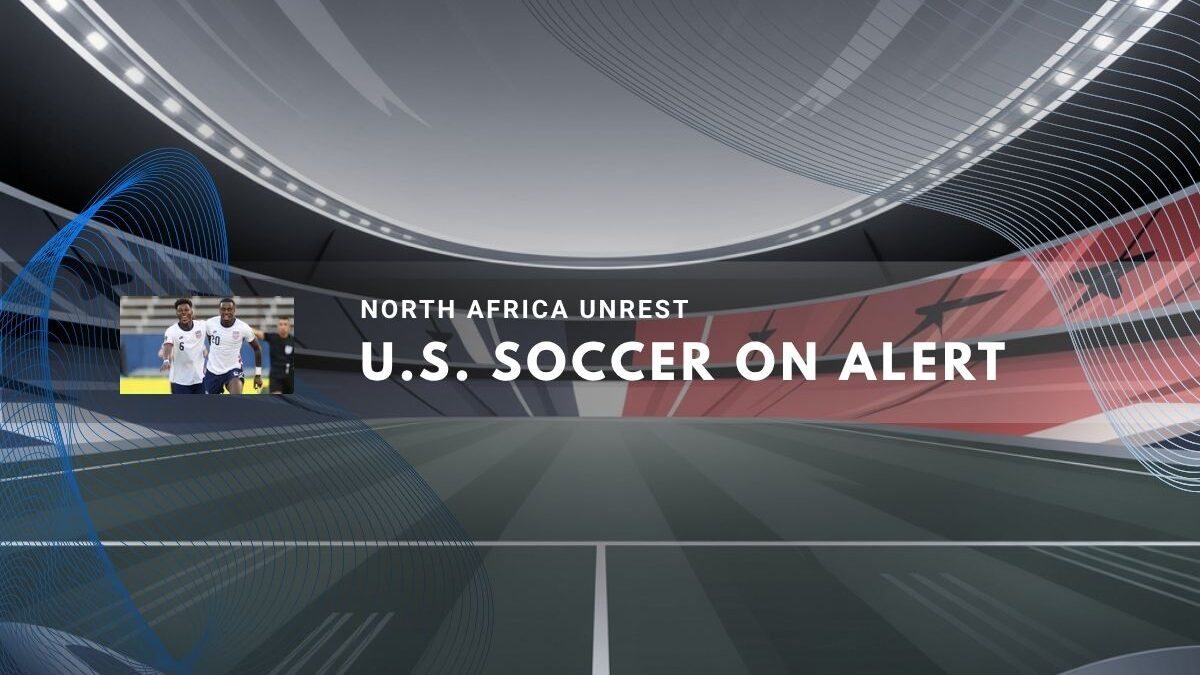U S Soccer is closely watching the situation in Morocco as the tournament approaches, with U S Soccer monitoring Morocco protests but making no travel or roster changes at this time. S Soccer monitoring continues as security teams assess conditions in Rabat, where the U 17 Women’s World Cup will be held. This soccer monitoring Morocco effort comes amid ongoing Morocco protests led largely by youth groups demanding better public services. Despite the unrest, U S Soccer has confirmed that the U 17 women’s national team will proceed with preparations as planned, with officials emphasizing that player safety remains the top priority.
Youth-Led Protests Disrupt Morocco Before Tournament
Morocco is facing significant youth-led anti-government protests just days before the U-17 Women’s World Cup begins on October 17 in Rabat, the capital city where the entire tournament will be held. The protests, organized largely by the anonymous group “Gen Z 212” via social media platforms like Discord and TikTok, started on September 27 and have spread across more than a dozen cities. Demonstrators are demanding better education and healthcare services, criticizing the Moroccan government’s heavy spending on infrastructure for the 2030 FIFA World Cup, which Morocco will co-host with Spain and Portugal.[1][2][3]
U.S. Soccer’s Position and Security Status
U S Soccer has confirmed that it is closely monitoring the situation but has made no changes to travel or security plans for the U 17 world tournament. The 17 world cup event includes the U S youth national team featuring three players from the NWSL. Despite the ongoing protests and unrest, U S Soccer’s security team remains vigilant. The women’s team is preparing for the U 17 women’s world competition, and no modifications have been announced. This women’s world stage is significant for the development of young players, and officials continue to evaluate local conditions as the 17 world approaches.[4]
Protesters’ Grievances and Government Response
The protests focus on the contrast between government investments in massive stadium projects, including the world’s largest stadium under construction for the 2025 Africa Cup of Nations and 2030 World Cup preparations, and the underfunding of essential public services like hospitals and schools. Youth protesters chant slogans such as “No World Cup, health first” and “We want hospitals, not football stadiums.” The unrest has occasionally turned violent, with at least three protesters reported killed during clashes at a police station in Lqliâa, as police acted in self-defense against attempts to storm their facility.[2][5][6][7][1]
Moroccan Prime Minister Aziz Akhannouch has expressed willingness for dialogue but faces demands from protesters to resign. The government has detained over 400 demonstrators, many of whom are minors, and there have been injuries among both protesters and security forces.[8][1][2]
Impact on Football Events
Morocco’s football infrastructure investments aim to boost its profile as a global football nation, hosting multiple events including the U-17 Women’s World Cup until 2029, the Africa Cup of Nations in December 2025, and the 2030 men’s World Cup. The Confederation of African Football’s (CAF) president has affirmed that the protests will not alter plans for the Africa Cup of Nations. However, the protests illustrate the tension between the country’s football ambitions and social realities experienced by much of its population.[9][10][11][4]
FIFA President Gianni Infantino previously praised Morocco’s football growth, highlighting the historic move of hosting the 17 women s world tournament in Africa and the women s team’s progress. He emphasized the importance of the women s world stage for developing young players in the region. Yet, the current social upheaval signals challenges ahead for merging sports development with public demands.



